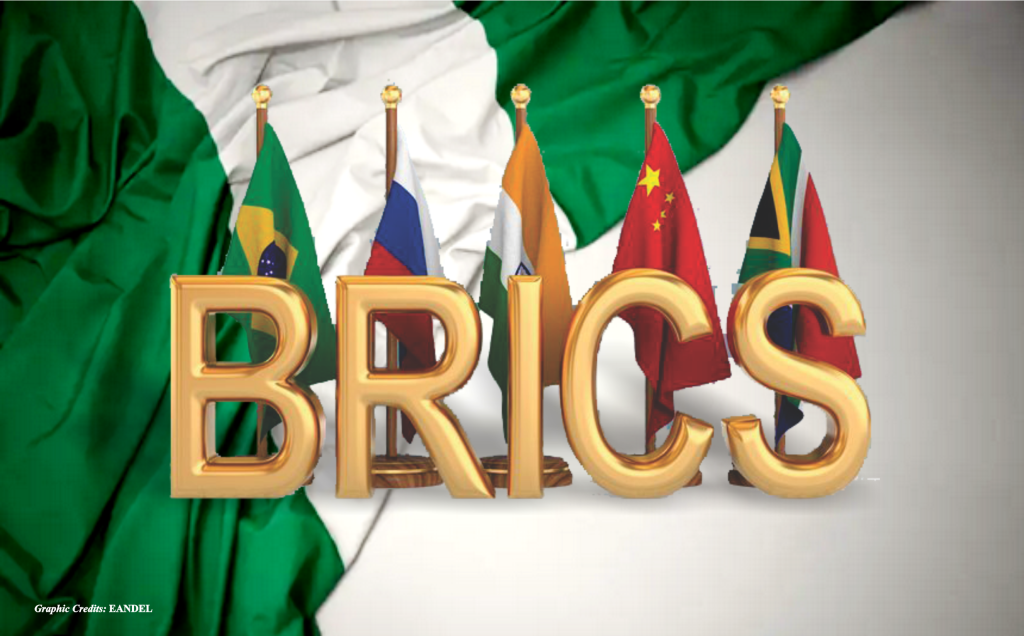The BRICS and G7 Politics for Nigeria: Not One or the Other

In the dynamic arena of global geopolitics, Nigerians must shed the illusion that their country has to pick sides between BRICS and the G7. Rather than viewing these blocs as mutually exclusive, Nigeria should boldly pursue a dual-engagement strategy that taps into the opportunities offered by both. It is not a matter of ‘either-or’ but ‘both-and’. This is a strategic move that reflects Nigeria’s aspirations as a global player.
BRICS vs G7 is a false dichotomy
It is true that China, a key BRICS member, has invested heavily in Nigeria’s industrial sector. This is particularly visible in the Ogun, Ota, Lagos, and Badagry axis, among other locations. These visible investments often overshadow Western contributions, which tend to be more subtle and regulatory-focused. But raw investment volumes do not tell the whole story. Many Chinese investments come with challenges. Take debt sustainability as example. Limited local job creation remains an issue. We cannot ignore environmental concerns either. Meanwhile, G7-linked initiatives often support democratic institutions, capacity building, and regulatory reforms that are less visible but equally essential for long-term development.
Currency Policy and the Sovereignty Debate
Yes, Bretton Woods institutions influenced by G7 powers often push currency devaluation policies in emerging economies, including Nigeria. But it would be simplistic to attribute Nigeria’s economic struggles solely to G7 influence. Macroeconomic mismanagement at home plays a major role. It is also worth noting that BRICS institutions like the New Development Bank have not exactly rushed to fill Nigeria’s financing gaps. Neither bloc is altruistic. Both run based on interest. Those rooting for Nigeria should assume the responsibility of strategically aligning their interests with those of Nigeria.
Non-Alignment 2.0: Nigeria’s Diplomatic Playbook
Nigeria must take a cue from fellow emerging powers like India and South Africa who engage both BRICS and G7 with calculated pragmatism. This is not fence-sitting. It is strategic positioning in a multipolar world. Nigeria’s influence must be exercised in multiple fora. The country must use BRICS to assert African agency while using G7 platforms to strengthen ties with traditional powers and access advanced technology, finance, and markets. And this brings me to the issue of strategic engagement as opposed to selective alignment.
Frustration with the G7 is understandable. However, disengagement is not a strategy. Nor is blind faith in BRICS a silver bullet. Nigeria must evolve from being a passive recipient of foreign policy to becoming a confident global actor. The future lies not in choosing sides, but in choosing strategy.
That is why I stand by my position: Nigeria needs BRICS and G7. This is not naivety; it is geopolitical maturity. Let us play the global game with clarity, courage, and conviction.






